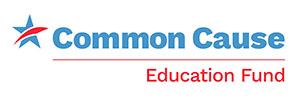Where Does the Affordable Connectivity Program Go from Here to Help Millions More Households Get Online?

Thursday, June 16, 2022
Digital Beat
Where Does the Affordable Connectivity Program Go from Here to Help Millions More Households Get Online?

We are wrapping up ACP Awareness Week, a week of action to help spread the word about the benefits of the Affordable Connectivity Program (ACP). Groups all over the country have launched social media campaigns, held events, and published blog posts to promote the Affordable Connectivity Program and make a big push to get even more people signed up for the program.
So, what is ACP? Simply put the ACP is a broadband affordability program that provides a discount of up to $30 per month toward internet service for eligible households and up to $75 per month for households on qualifying Tribal lands.
The Federal Communications Commission launched ACP in January 2022 as a successor to the Emergency Broadband Benefit (EBB). We’re at the midway point of the year since the program’s launch, and there are over 12 million households who have enrolled in the ACP. This means that 12 million households now have affordable internet, many of which were not previously connected. They can now attend the virtual classroom, telework, communicate with their loved ones, and be civically engaged with their communities without having to choose between broadband access and other essential needs. Undoubtedly, this is a huge step forward in closing the digital divide and will play a meaningful role in changing the lives of people all over the country.
So, how did we get 12 million households enrolled in the program? Outreach, outreach, and more outreach. In the weeks and months following the ACP’s launch, the FCC, civil society groups, local and state governments, anchor institutions, and broadband providers of all sizes engaged in outreach efforts to increase awareness about the program and enroll consumers. Given the all-hands-on-deck effort to increase program awareness and enrollment, it is worth taking a moment to recognize some of the organizations and institutions who helped to get the ACP where it is, and give credit where credit is due.
First, the FCC has done a fantastic job getting the program off the ground. The Commission staff deserve recognition for the countless hours toward implementing and adopting rules for the ACP while working with external stakeholders to promote the program.
Second, the White House has provided visibility to the program and worked to push the major broadband providers to offer products that do a better job of meeting consumers’ connectivity needs. On May 9, 2022, the White House hosted an event at the Rose Garden highlighting the program, the launch of a new website, and new plans from major broadband providers that consumers can enroll in using the subsidy. Both VP Harris and President Biden spoke at the event, further underscoring the importance of the program in ensuring everyone has affordable connectivity.
Third, civil society groups have played an invaluable role from the beginning by participating in the rulemaking to help shape the rules of the program, spreading the word about the program, training digital navigators to assist consumers in signing up for the program, helping to translate consumer resources into a wide variety of different languages, and more. Groups like Asian Americans Advancing Justice and the National Hispanic Media Coalition have worked on translating educational materials, while the National Urban League, the National Digital Inclusion Alliance, and their affiliates have promoted the program all over the country. Even ACP Awareness Week wouldn't have happened if not for the great work of the Leadership Conference on Civil and Human Rights and all of the other organizations participating.
So as this week of action comes to a close, where do we go from here?
Although there is already a ton of fantastic work being done on the ground, many of the groups would benefit from more funding that could be used to conduct direct outreach, train digital navigators, and more. Congress understood this, which is why the Infrastructure Investment and Jobs Act authorized the FCC to provide grants to community-based organizations for ACP outreach and education activities. The FCC is currently engaged in a rulemaking to develop rules for how the grant program would work. We look forward to the completion of this rulemaking so that groups on the ground can get the critical support they need to help households enroll.
This outreach grant program should prioritize funding for trusted messengers (e.g., community-based organizations, local and state governments, faith-based organizations, public schools and libraries) familiar with the affected communities, because education and outreach programs must be culturally relevant to each particular community to maximize their success. It is crucial that this program be set up soon, and grant money gets disbursed to the groups that are on the ground working for the public interest.
One issue that needs continued attention is the language gap that non-English speaking communities face when learning about and trying to sign up for the program. Some communities have found the resources provided by the FCC to be “overly technical and [not] useful to the average users,” while others have found the application process to be difficult for people to do on their own. There needs to be more in-language bilingual and culturally competent resources and translator support so that people of color, immigrant communities, and other non-English speaking groups can be better informed about the program.
The ACP rules built on the EBB rules by adding significant consumer protections, including prohibitions on upselling by providers and termination of service for nonpayment. Now that these protections are in place, they need to be enforced. Bad actors saw EBB as an opportunity to scam unsuspecting consumers, and these same bad actors will undoubtedly do the same with ACP. During EBB, Verizon and other providers forced consumers to switch plans to get the benefit and used it as an opportunity to upsell consumers. Although the new rules prohibit this practice, that does not mean it won’t happen. Both fly-by-night and legitimate providers should not be permitted to take advantage of low-income consumers, and it is up to the FCC to constantly watch for bad behavior and enforce the rules as violations occur.
The ACP is truly a fantastic program, and it cannot be understated what an accomplishment it is, but there is still work to be done to ensure that all people can fully take advantage of the connectivity it offers. In the meantime, Common Cause will mobilize its members to promote the program and ensure it’s successful in reaching as many households as possible.
Jonathan Walter is a Common Cause Media & Democracy Program Fellow
The Benton Institute for Broadband & Society is a non-profit organization dedicated to ensuring that all people in the U.S. have access to competitive, High-Performance Broadband regardless of where they live or who they are. We believe communication policy - rooted in the values of access, equity, and diversity - has the power to deliver new opportunities and strengthen communities.
© Benton Institute for Broadband & Society 2022. Redistribution of this email publication - both internally and externally - is encouraged if it includes this copyright statement.
For subscribe/unsubscribe info, please email headlinesATbentonDOTorg






